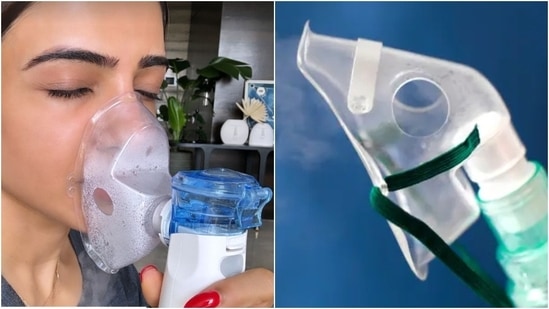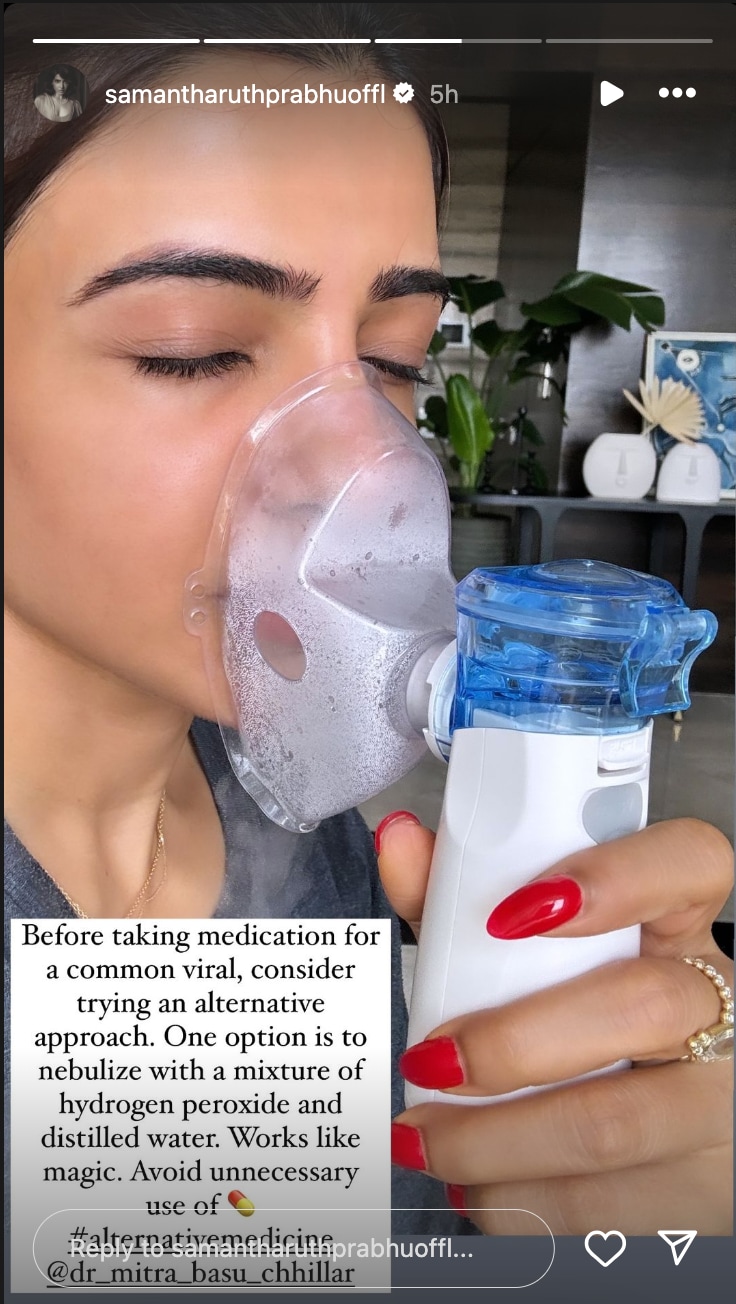
Samantha Ruth Prabhu recommends hydrogen peroxide nebulisation; doctor says it can actually be harmful for you
2 days ago | 20 Views
Actor Samantha Ruth Prabhu recently shared a picture of herself trying out an alternate approach to viral medication. In the picture shared on her Instagram story, Samantha can be seen taking a viral medication with the help of a nebuliser. “Before taking medication for a common viral, consider trying an alternative approach. One option is to nebulise with a mixture of Hydrogen peroxide and distilled water. Works like magic. Avoid unnecessary use of pills,” read the text on Samantha's story. Take a look at the picture here.

Responding to this, in an interview with HT Lifestyle, Dr Rituja Ugalmugle, Internal Medicine, Wockhardt Hospitals, Mumbai, said, “Hydrogen peroxide (H₂O₂) and distilled water nebulization have been discussed in various contexts, including home remedies and alternative treatments. However, it's essential to consider the evidence-based medical perspectives on their safety and potential dangers.”
Dr Rituja Ugalmugle further pointed out the risks of hydrogen peroxide and distilled water. “Both hydrogen peroxide and distilled water nebulization come with potential risks. Hydrogen peroxide is generally not recommended for nebulization due to its potential to cause oxidative stress, mucosal irritation, and other serious respiratory issues. Distilled water, while safer than hydrogen peroxide, can still pose risks if used inappropriately. Normal saline remains the preferred choice for nebulization due to its safety profile and compatibility with the body’s electrolyte balance.”
Hydrogen Peroxide Nebulisation: Safety concerns
Oxidative stress:
Hydrogen peroxide is a strong oxidising agent. When nebulised and inhaled, it can cause oxidative stress and damage to lung tissues.
Mucosal irritation:
Inhaling hydrogen peroxide can irritate the mucosal lining of the respiratory tract, leading to coughing, throat irritation, and potentially more severe respiratory distress.
Cytotoxicity:
Hydrogen peroxide can be cytotoxic to epithelial cells in the respiratory tract, potentially leading to cell death and tissue damage.
Hydrogen Peroxide Nebulisation: Potential Dangers
Acute lung injury:
In severe cases, inhalation of hydrogen peroxide can cause acute lung injury – common symptoms include difficulty in breathing, chest pain, and wheezing.
Chemical burns:
High concentrations of hydrogen peroxide can cause chemical burns to the respiratory tract, leading to severe damage and complications.
Risk of infection:
Using non-sterile solutions or improper handling can introduce pathogens, leading to respiratory infections.
Read Also: mom-to-be deepika padukone reveals her five-minute self-care routine!
















